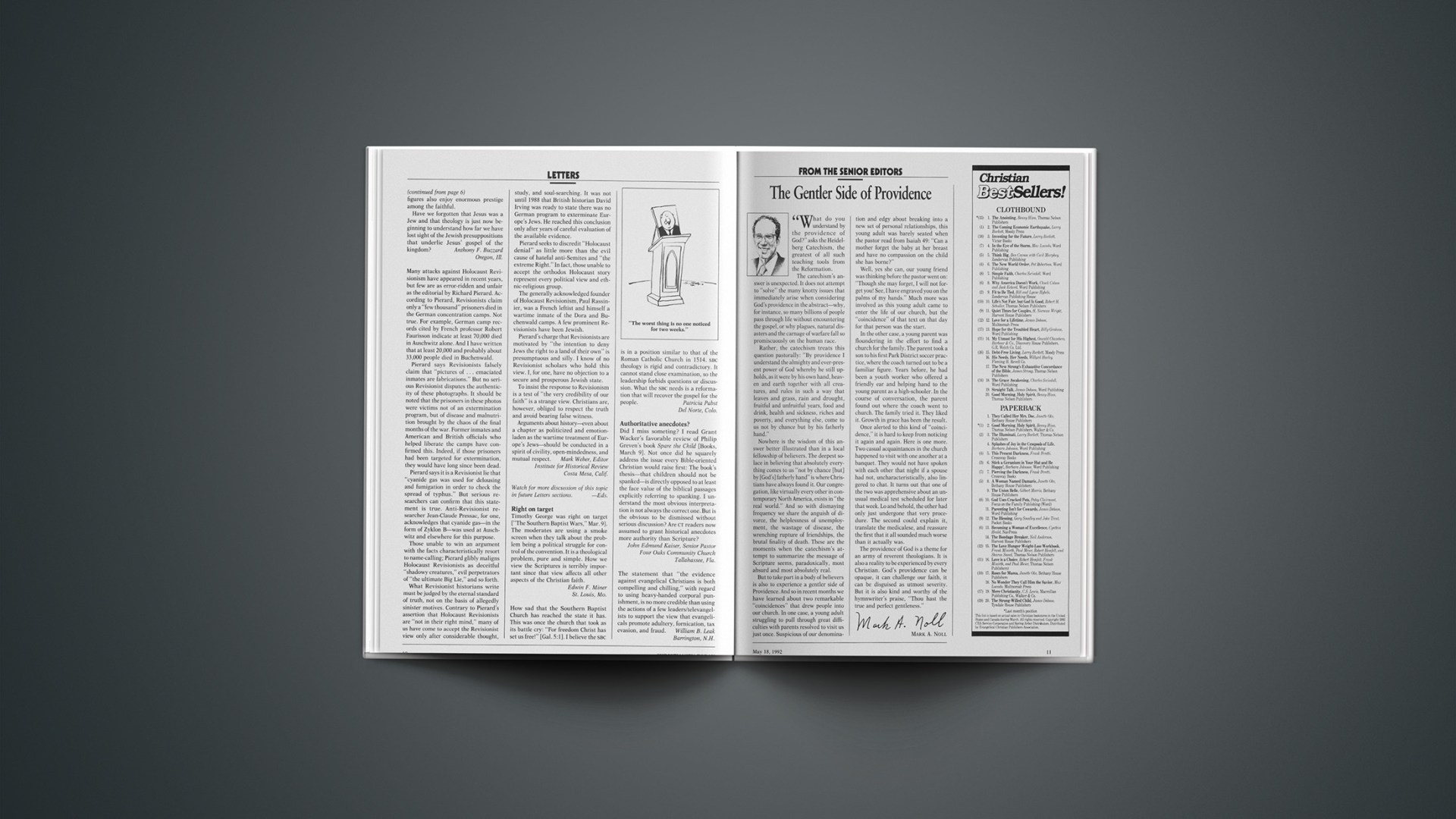“What do you understand by the providence of God?” asks the Heidelberg Catechism, the greatest of all such teaching tools from the Reformation.
The catechism’s answer is unexpected. It does not attempt to “solve” the many knotty issues that immediately arise when considering God’s providence in the abstract—why, for instance, so many billions of people pass through life without encountering the gospel, or why plagues, natural disasters and the carnage of warfare fall so promiscuously on the human race.
Rather, the catechism treats this question pastorally: “By providence I understand the almighty and ever-present power of God whereby he still upholds, as it were by his own hand, heaven and earth together with all creatures, and rules in such a way that leaves and grass, rain and drought, fruitful and unfruitful years, food and drink, health and sickness, riches and poverty, and everything else, come to us not by chance but by his fatherly hand.”
Nowhere is the wisdom of this answer better illustrated than in a local fellowship of believers. The deepest solace in believing that absolutely everything comes to us “not by chance [but] by [God’s] fatherly hand” is where Christians have always found it. Our congregation, like virtually every other in contemporary North America, exists in “the real world.” And so with dismaying frequency we share the anguish of divorce, the helplessness of unemployment, the wastage of disease, the wrenching rupture of friendships, the brutal finality of death. These are the moments when the catechism’s attempt to summarize the message of Scripture seems, paradoxically, most absurd and most absolutely real.
But to take part in a body of believers is also to experience a gentler side of Providence. And so in recent months we have learned about two remarkable “coincidences” that drew people into our church. In one case, a young adult struggling to pull through great difficulties with parents resolved to visit us just once. Suspicious of our denomination and edgy about breaking into a new set of personal relationships, this young adult was barely seated when the pastor read from Isaiah 49: “Can a mother forget the baby at her breast and have no compassion on the child she has borne?”
Well, yes she can, our young friend was thinking before the pastor went on: “Though she may forget, I will not forget you! See, I have engraved you on the palms of my hands.” Much more was involved as this young adult came to enter the life of our church, but the “coincidence” of that text on that day for that person was the start.
In the other case, a young parent was floundering in the effort to find a church for the family. The parent took a son to his first Park District soccer practice, where the coach turned out to be a familiar figure. Years before, he had been a youth worker who offered a friendly ear and helping hand to the young parent as a high-schooler. In the course of conversation, the parent found out where the coach went to church. The family tried it. They liked it. Growth in grace has been the result.
Once alerted to this kind of “coincidence,” it is hard to keep from noticing it again and again. Here is one more. Two casual acquaintances in the church happened to visit with one another at a banquet. They would not have spoken with each other that night if a spouse had not, uncharacteristically, also lingered to chat. It turns out that one of the two was apprehensive about an unusual medical test scheduled for later that week. Lo and behold, the other had only just undergone that very procedure. The second could explain it, translate the medicalese, and reassure the first that it all sounded much worse than it actually was.
The providence of God is a theme for an army of reverent theologians. It is also a reality to be experienced by every Christian. God’s providence can be opaque, it can challenge our faith, it can be disguised as utmost severity. But it is also kind and worthy of the hymnwriter’s praise, “Thou hast the true and perfect gentleness.”










